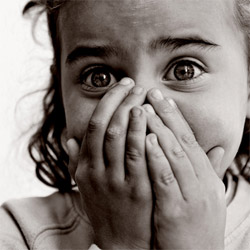Helping Children Process and Overcome Horrific Trauma via Media
Friday, December 15, 2012 was a day that witnessed the horror of young students in two schools being assaulted (Central China and Connecticut, USA), leaving dozens slain and injured. This kind of violence rocks us to the core, because it not only reminds us of the reign of evil in this broken, sinful world, but it strips away our illusion that our children are truly safe from the threat of assault and death. And if news of this sort rocks us adults to the core, what does it do to our children? Here is a primary suggestion from me, and a couple of articles from others, that I hope will help you help your children find peace in this time of storm:
Limit Your Media Consumption of Horrible News. This goes for YOU, as well as for your children. Depending on the age of your children, you may do well to keep terrible news events from their attention, especially school related tragedies such as those that occurred this week. They may hear the news anyway, and you can follow the remaining guidelines, but why burden them with such stress and secondary trauma unnecessarily? And once you learn what happened and what is being done about it, why do you need to continue to search for more and more details? As if knowing all about such atrocities will make it all make sense, or somehow ensure future safety? Rather than focusing your attention on the ugliness of the problem, you would do well for your self and your family to focus your attention on the solutions of faith, hope, and love.
One other suggestion is to resist the temptation to give your child reassurances that aren’t really honest or solid just to make them (and yourself) feel better. Don’t make promises on God’s behalf that he hasn’t actually made us. Be reassuring and show them how your faith in our loving, powerful God leads you through times like this. But don’t tell them things like “God will never let anything like this happen to us.” As much as we want that to be true, we need to limit our reassurances to things we know are solid.
In His Grace,
Roger D. Butner, PhD, LMFT
Responding to the Connecticut School Shooting:
Six “T’s” for Helping Kids through Trauma
Today, an unspeakable tragedy took place at Sandy Hook Elementary School in Newtown, Connecticut. Fox News reports that 26 people are dead; 20 of the victims are elementary age children. It’s horrifying, mind-boggling and surreal—an unspeakable evil and every parent’s nightmare.
Pray for the families of the victims and the entire community of Newtown during this confusing and desperate time. Around the dinner table tonight, there will be many conversations about why tragedies like this happen… and questions from kids about whether or not they’re safe, especially at school.
As one mother on the scene put it, “I’m in a state of shock. I don’t know how I’m going to handle having [my daughter] know… about the whole situation.”
Trauma is best understood as any event that shatters our sense of safety. Immediately, one can become hyper vigilant—overly sensitive and set on emotional alert. Fear rules, especially in kids. The pictures online screamed of the horror. In these moments, children need adults who are attuned to their emotions and tender to their needs.
Togetherness. This is a night where your kids need to have you close. They need to know they’re safe. Pull in together as a family. Pray together. Be together. The antidote to trauma is safe, loving relationships. Coddle your children a little bit more. Stay in close proximity to them, particularly if they’re anxious or afraid.
Touch and Tenderness. Touch is an expression of affection that reinforces proximity and closeness. It produces a calming affect. Fear makes our minds race and wander, but tender touch dispels it. Hold a hand. Stroke your children’s hair. Let them sit in your lap. Wrap your arms around them. Kiss them. Be present emotionally. If they’re acting out a little bit with anger, rebellion or defiance, it very well could be a fear response. Be sensitive to their behavior.
Talk. The questions will come: “Will a shooter come to my school?” “Why did he hurt those kids?” Be present, sensitive, and don’t offer pat answers. Engage them in age-appropriate discussion. Contrary to what many of us believe, talk doesn’t perpetuate anxiety—it helps to reduce it. Avoid graphic details, but don’t skirt around the issue. Become a safe place for them to bring their questions.
Truth. Fears of the unknown can paralyze us. Anchor their hearts in truths like, “Not everyone in the world is bad. You’re safe now. God loves us and is close to us.” Remember, our kids absorb us. Your mood, thoughts, and actions directly influence theirs. These truths flow through you–Mom and/or Dad. Share the promises of God’s Word with your kids. Pray for, and with, them.
Triggers. Someone screaming. A door slamming. A siren. What children experience or see on the news can deeply affect them. Don’t let your kids get overdosed with the news stories and all the gory details. This can lead to nightmares, excessive bouts of crying, deepening fear, and not wanting to attend school. Be attuned to your children. Don’t react to their emotions, respond lovingly.
Time. Don’t rush or ignore this process. Over the next several days, we will all be flooded with information about the shooting. Keep your life as normal as possible. Sameness and routine reinforce the message of safety for your kids. Your family stability over time will help dispel their fears.
Our children are not immune to the darkness and brokenness of our world. We may think that if we ignore this incident, our kids won’t know about it or feel the impact. Nothing could be further from the truth! Our kids need parents and teachers—those who have influence in their lives—to be emotionally present and invested, especially in moments like these.
Tim Clinton, Ed.D., (The College of William and Mary) is President of the nearly 50,000-member American Association of Christian Counselors (AACC), the largest and most diverse Christian counseling association in the world. He is Professor of Counseling and Pastoral Care, and Executive Director of the Center for Counseling and Family Studies at Liberty University. Licensed in Virginia as both a Professional Counselor (LPC) and Marriage and Family Therapist (LMFT), Tim now spends a majority of his time working with Christian leaders and professional athletes. He is recognized as a world leader in faith and mental health issues and has authored or co-authored 20 books including his latest, Break Through: When to Give In, How to Push Back. Most importantly, Tim has been married 32 years to his wife Julie and together they have two children, Megan and Zach.
Helping Kids Cope With Traumatic Events
Bruce D. Perry, M.D., Ph.D.
Be open, honest, clear and accurate. Children do not benefit from “not thinking about it” or “putting it out of their minds.” It is important, however, how you talk about this. Your children will hear some of your conversations with friends, family and your spouse. They may be hearing some of what is on the news because you have on the TV. It is important to make sure that you talk with your child. You should be the healthy filter of information for your child.
2. Find out what your child thinks and feels
An important first step in talking with your child is to find out what they have heard and how they feel about that. Young children often make false assumptions about the causes of major events. Often these distortions will magnify his or her sense of fear and make your child more likely to have persisting emotional or behavioural problems. Correct their misperceptions with simple, age-appropriate explanations.
3. Take your child’s lead on when, what and how much to say
After you have some sense of what your child knows and how they feel, gauge your answers to their concerns. You do not need to be too detailed or comprehensive. In fact, you may find that the child just acts disinterested or seems to ignore what you are saying. If you let the child control when you discuss this–directed by their questions–you will find that you will have many, many short discussions and not one “big” talk. These little discussions make it easier for the child to digest this huge emotional meal.
4. Don’t feel that you have to have all the answers
Some aspects of disturbing world events remain beyond understanding. You can explain that there are some things you just don’t know or understand–and that sometimes we will never know why some things happen. If your child sees that you struggle to make sense of this, their own struggle to do so becomes easier. And when they see you continue to be a solid and caring parent–even when you don’t have all the answers–they’ll actually feel safer. The unknown becomes a less frightening thing.
5. Reassure your child
Your child may have increased fears about their own personal safety, as well as increased anxiety about the safety of the grown-ups in their life whom they love and depend upon. While many traumatic occurrences happen unexpectedly and it’s often difficult to imagine what if any protective measures could have been taken, this is a good opportunity to reassure your child about the many things that can and are done on a daily basis to avoid danger and ensure safety, e.g., using seatbelts, looking before crossing streets, following instructions.
6. Limit your child’s exposure to media coverage
Watching televised images of catastrophic events over and over doesn’t help your child. In fact, it may make this worse for them. Media coverage can be both inappropriate and highly confusing for children age six and under. If your child does watch the news, watch it with them and then discuss it. Ultimately, the goal is to decrease the traumatic power of images of the traumatic occurrence and that’s very difficult when the images permeate the media.
7. Reinforce normal patterns of activity at home
It is helpful to keep routines. The sooner there is a familiar structure and predictability to your child’s life, the sooner she or he will feel safe.
8. Anticipate some “regressive” behaviours following traumatic events
When children feel overwhelmed, confused, sad or fearful, they will often “regress.” And so do adults. You may see a variety of symptoms in your child, including include anxiety (or fearfulness), sadness, difficulty concentrating, sleep problems, and/or increased impulsivity or aggression. These symptoms are usually short-term (days or weeks) and tend to resolve with reassurance, patience and nurturing. When children feel safe, they will be most likely start to “act their age.”
9. Some children will be more vulnerable than others
Not all children will react to these events in the same way. Some children may seem disinterested and no changes in their behaviours will be noticed. Other children may have profound symptoms that seem out of proportion to their real connection to these events. We cannot predict how a given child will react but we do know that children with pre-existing mental health or behavioural problems are more likely to show symptoms. We also know that the closer a child is to the actual traumatic event (i.e., if a loved one or family friend was injured or killed) the more severe and persisting the symptoms will be.
10. Your reactions will influence your child’s reactions
Your child will sense emotionally intensity around them and will mirror your emotional responses and interpretations. Younger child will try to please you–sometimes by avoiding expressing their own emotions if they sense that it may upset you. Try to gauge your own sense of discomfort and directly address this with the child. It is reassuring to children to know they are not alone in some of their emotional upset. Make sure they hear, many times, that even though it may be upsetting it is still important to share feelings and thoughts with each other.
11. Don’t hesitate to get more advice and help
If you feel overwhelmed, or if you see persisting problems with your child, don’t hesitate to reach out for help. Seeking the advice of a therapist can help answer your questions and help you get the services your child needs.




0 Comments